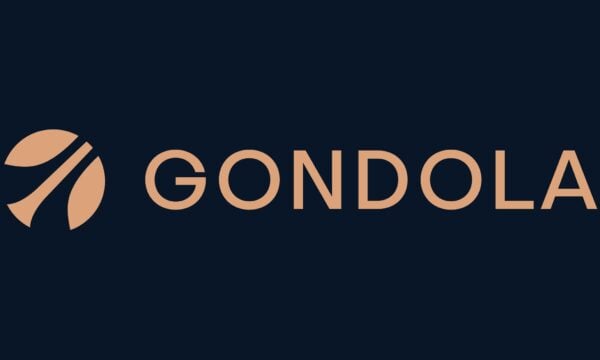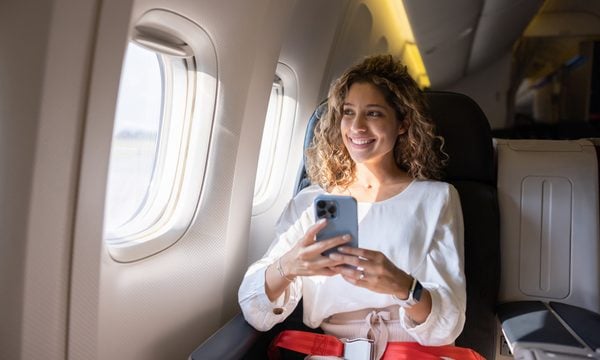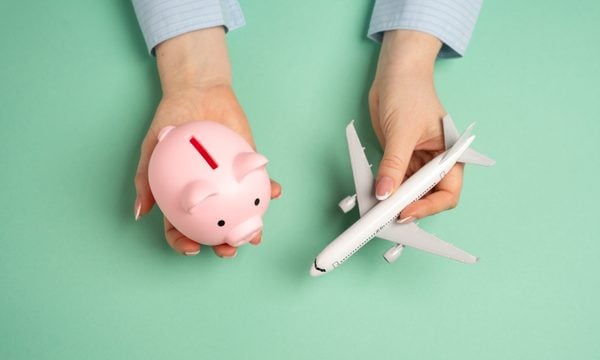The Cheapest Ways to Fly From the U.S. to Australia
Various frequent flyer programs offer cheap flights to Australia, including United MileagePlus and American AAdvantage.

Many or all of the products on this page are from partners who compensate us when you click to or take an action on their website, but this does not influence our evaluations or ratings. Our opinions are our own.
Australia is on the bucket list for many travelers, but getting there can be expensive. But rest assured, there are still ways to save.
Are you looking for cheap flights to Australia? It doesn’t get much cheaper than using points and miles for your flight. While cash prices can fluctuate dramatically depending on the season, award flights tend to favor more steady pricing. Savvy travelers can take advantage of this to head to the Land Down Under for cheap. Here's how.
Get the 'Cheat Codes' to Cheaper Travel
Unlocking the secret to saving a ton on travel is easier than you think. 📤 Our free newsletter shows you how in 5 min. or less.

The cheapest ways to fly from the U.S. to Australia
Alaska Atmos rewards
What airlines fly to Australia? Quite a few do, including Qantas Airways, American Airlines, United Airlines and Delta Air Lines. One of the best ways to book a flight to Australia, however, is via Alaska Airlines, a member of the Oneworld alliance. Because of its partnership with Qantas Airways, Alaska members can redeem points for flights at an attractive rate.
Alaska prices for a one-way economy class flight from the continental U.S. start at 42,500 points, while prices start at 85,000 points for a one-way business class flight on Oneworld partner Qantas.
Because Alaska features no major credit card transfer partners besides Bilt Rewards, Alaska points aren’t the easiest to earn. However, you can earn points with the Atmos™ Rewards Ascent Visa Signature® credit card. Or, you can opt to buy points (often with a bonus amount attached) or transfer Marriott Bonvoy points.
» Learn more: Is buying miles worth it?
Avianca LifeMiles
Avianca LifeMiles are another alternative to get to Australia, and they’ll still charge you just 40,000 miles one-way in economy class or 80,000 miles in business.
This is a fairly standard rate for Australia flights, and Avianca won’t charge you more whether you’re departing from the East Coast or the West Coast. The biggest reason Avianca is on this list is due to the program’s strong transfer partnerships, making these miles simple to earn.
You can transfer American Express Membership Rewards, Capital One Miles and Citi ThankYou points to Avianca LifeMiles at a 1:1 ratio, meaning one point becomes one mile.
A neat loophole within the LifeMiles program is that you can book yourself mixed-class awards and Avianca will discount the redemption price accordingly.
For example, you can book a one-way flight from Los Angeles to Auckland, New Zealand, in business class for 80,000 LifeMiles.
However, that price can fall when booking a trip from San Francisco to Brisbane. The total cost of your redemption drops to 72,880 miles, even though you'll be taking three separate flights and traveling all the way to Australia. That’s because the two shorter legs are in economy, and LifeMiles adjusts the price downward — even though you’re in business class on the long haul leg.
» Learn more: Do I need travel insurance for visiting Australia?
American Airlines AAdvantage
Another member of Oneworld, American Airlines is one of the “Big Three” U.S. airlines. The question is: How many AAdvantage miles are needed to fly to Australia? Like Avianca, American charges 40,000 AAdvantage miles one-way in economy and 80,000 miles in business class.
These flights will tend to be on Qantas Airways or American Airlines, and you won’t pay more if you need a connecting flight from the East Coast.
American Airlines has a variety of co-branded credit cards through Citi. A welcome bonus on one of these cards can help you earn a large sum of points. You can also transfer Citi ThankYou points to American's AAdvantage program at a 1:1 or 1:0.7 ratio, depending on which card you hold.
» Learn more: The best airline credit cards right now
All Nippon Airways Mileage Club
Our second-cheapest option on the list is All Nippon Airways, or ANA. As a member of the Star Alliance, ANA features flights from United, Air Canada, Lufthansa and Swiss, among others.
ANA is unique in that you cannot book one-way flights with points. This means you’ll need to find award availability in both directions to book your flight. Your patience will be rewarded, however; ANA charges 75,000 Mileage Club miles for economy class tickets and 120,000 miles for business class tickets. This comes out to 60,000 miles one way for a business class ticket.
And if you’re trying to figure out: How much does a first class flight to Australia cost? ANA has you covered: It’ll charge 225,000 miles round trip to sit in the fanciest part of the plane.
ANA has its own co-branded credit card, but it doesn't offer a great return on your spending. Happily, it also partners with AmEx, meaning you can transfer over your AmEx points to ANA at a 1:1 ratio.
United Airlines MileagePlus
The last option on our list is another Star Alliance carrier, and although it’s not the most exciting option around, it can still provide solid value for customers.
So, it's how many United miles to fly to Australia? United will charge 40,000 United miles one way in economy and 80,000 miles one way in business. It’s important to note that United charges more for flights on partner airlines rather than its own; these 40,000 and 80,000 figures are specific to United.
If, instead, you were to fly on a partner, you can expect to pay either 44,000 or 88,000 miles for flights. These aren’t great rates, but United is a transfer partner of Chase Ultimate Rewards®.
There is a wide variety of Chase cards that earn transferable points — such as the Chase Sapphire Preferred® Card and Chase Sapphire Reserve® — making these points reasonably easy to earn. These points can then be transferred to United at a 1:1 ratio.
» Learn more: How to earn United miles
Consider travel insurance to protect your upfront costs
If you're worried your Australia flight plans may change or are at risk for cancellation, travel insurance might help. This optional standalone insurance can be purchased separately from your airfare, and certain plans include coverage for award flights.
Get the 'Cheat Codes' to Cheaper Travel
Unlocking the secret to saving a ton on travel is easier than you think. 📤 Our free newsletter shows you how in 5 min. or less.

But you might not even need to pay out-of-pocket for trip insurance because many credit cards offer travel insurance as a built-in benefit to customers who pay for travel expenses on that card.
» Learn more: How to find the best travel insurance for you
Cheap flights to Australia recapped
How much does it cost to fly to Australia? With the right strategy, it doesn’t have to be much.
Everyone should visit Australia at some point, though it can be more expensive than you’d like, especially if you’re paying in cash. Using points and miles can save you a lot of money, with plenty of airlines from which to choose. For the best rates in business class, look either to Alaska Airlines or ANA and enjoy those (many) hours on the plane in relative style.
How to maximize your rewards
You want a travel credit card that prioritizes what’s important to you. Here are some of the best travel credit cards of 2026:
- Flexibility, point transfers and a large bonus: Chase Sapphire Preferred® Card
- No annual fee: Wells Fargo Autograph® Card
- Flat-rate travel rewards: Capital One Venture Rewards Credit Card
- Bonus travel rewards and high-end perks: Chase Sapphire Reserve®
- Luxury perks: American Express Platinum Card®
- Business travelers: Ink Business Preferred® Credit Card
Article sources
NerdWallet writers are subject matter authorities who use primary,
trustworthy sources to inform their work, including peer-reviewed
studies, government websites, academic research and interviews with
industry experts. All content is fact-checked for accuracy, timeliness
and relevance. You can learn more about NerdWallet's high
standards for journalism by reading our
editorial guidelines.
Limited Time Only: Earn $1,000 Toward Travel!
Capital One Venture Rewards Credit Card 
Travel

For a limited time, the
Capital One Venture Rewards Credit Card is offering new cardholders an especially rich bonus: Enjoy $250 to use on Capital One Travel in your first cardholder year, plus earn 75,000 bonus miles once you spend $4,000 on purchases within the first 3 months from account opening - that’s equal to $1,000 in travel!
More like this
Related articles







